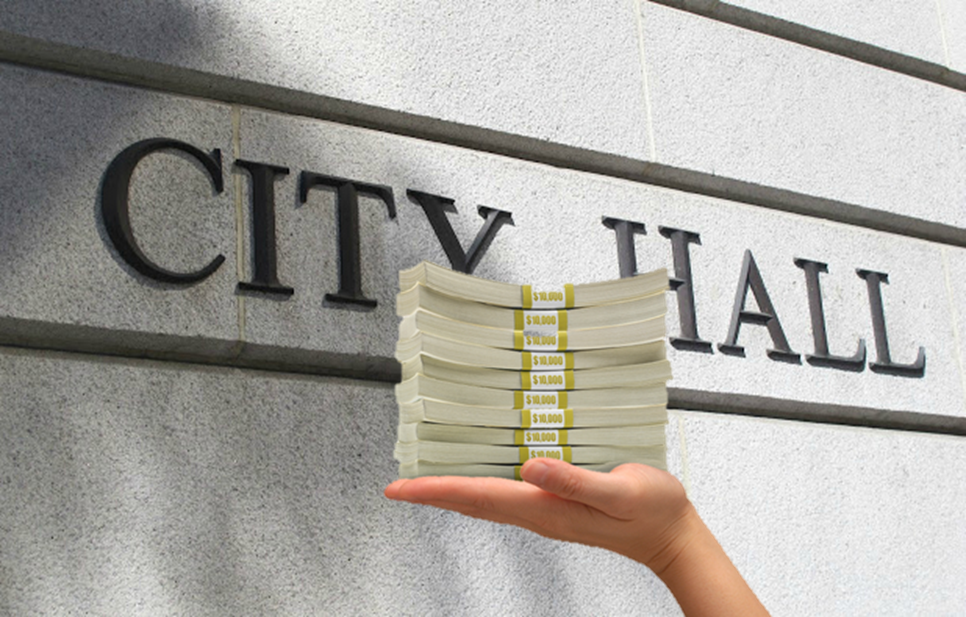The new hotel-tax initiative pushed by business and labor leaders promises to invest more money in homelessness and opens up the possibilities for a Convention Center expansion that isn’t on the waterfront. (It would also raise the hotel tax higher than has been proposed in the past.)
San Diego business and labor leaders are celebrating the New Year with a revamped pitch to raise hotel taxes to bankroll a Convention Center expansion, homeless services and street repairs.
Backers of the new citizens’ initiative took cues from Mayor Kevin Faulconer’s failed 2017 measure but made significant changes.
The biggest one: A promise to invest more of the increased hotel-tax hauls to homelessness services, housing and other initiatives. The initiative would raise the tax more than the previous plan sought and would put off the investment in street repairs.
Faulconer’s measure would have thrown just 18 percent of new cash at homelessness causes and nearly two-thirds at Convention Center and tourism-related wants. Democrats and labor leaders came out against Faulconer’s measure arguing that it should have done more to address San Diego’s homeless crisis.
We’re still waiting on detailed projections but initiative language released by the campaign promises far more money will go to homelessness, especially in the first five years of the measure. They’re estimating about a $140 million haul during this period.
“We decided to frontload homelessness dollars since it’s such a crisis right now,” said Carol Kim, a Building Trades Council official who helped hash out a deal with tourism leaders. “We wanted to deploy those dollars as quickly as we can.”
After that, homelessness will continue to get just under a third of new cash coming in. Proponents say they envision pulling in $2 billion for homelessness over 42 years, more than double the amount the mayor’s measure pledged.
The new measure accomplishes this in two ways.
First, it holds off on dollars flowing to road repair projects during the tax hike’s first five years and promises about a third less over the next 37 years than Faulconer’s measure earmarked for those projects.
It also relies on a steeper tax increase.
Last year, hoteliers maintained that Faulconer’s proposed 1-to-3 percent tax hike, depending on the proximity of hotels to the downtown Convention Center, was as much as they could muster without hurting local tourism.
This year, they agreed to tack another .25 percent increase onto hotel bills.
“Ultimately, the industry realized that an incremental increase of the amount we were talking about – a ¼ percent increase across these districts and a change in the percentages – would provide a really meaningful and significant addition to the homelessness funding and that that was of great importance to the industry,” said Robert Gleason of Evans Hotels, one of the key negotiators on the tourism side.
Hoteliers fit in another big edit too.
Tourism leaders have long been fixated on a contiguous Convention Center expansion. Now they’re offering themselves some breathing room.
Faulconer’s measure strictly linked funding to the waterfront, contiguous expansion approved by the Coastal Commission years ago.
The initiative includes new language indicating the Convention Center expansion must simply be “physically connected to the existing Convention Center” – and removes language suggesting the project approved by Port and state Coastal officials is the only option.
Some observers are reading this as though it opens up the door for an expansion across the street from the Convention Center with a walkway connecting the two facilities.
That would be convenient given the fact that the city and the Convention Center Corp. no longer controls the land need for the long-sought waterfront expansion. The partners who do are moving forward with a hotel that would permanently block the long-envisioned bayfront Convention Center expansion.
Laura Fink, a spokeswoman for the campaign, said this change wasn’t an accident.
“That was done so that there would be some flexibility with respect to location,” she said. “That was done deliberately.”
Fink, Gleason and Mike McDowell, president and CEO of the San Diego Lodging Industry Association, both emphasized Monday that the focus continues to be on the long-envisioned waterfront expansion for now.
[divider] [/divider]





